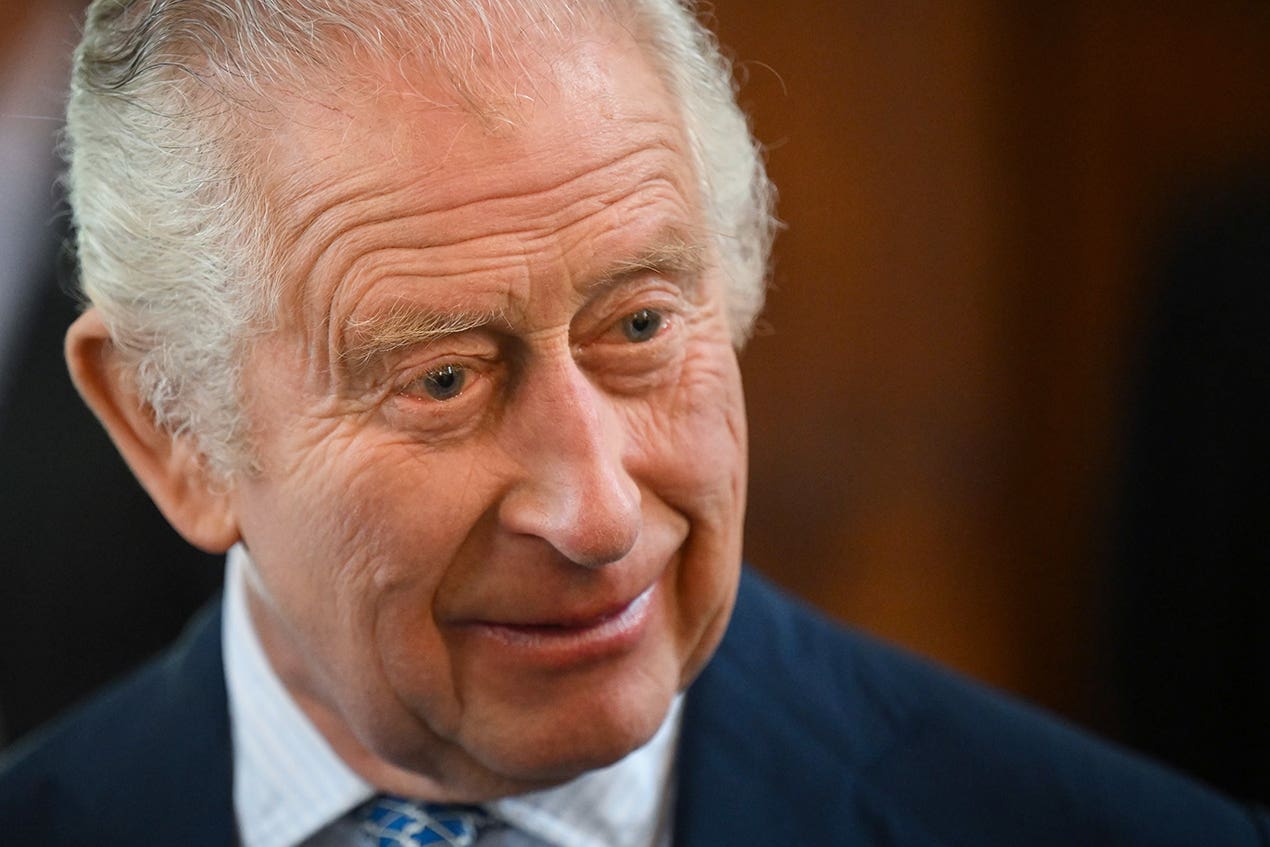King ‘inspired’ by church’s care for poor and refugees
A letter from the King was read out at the Church of Scotland’s general assembly gathering.

Your support helps us to tell the story
From reproductive rights to climate change to Big Tech, The Independent is on the ground when the story is developing. Whether it's investigating the financials of Elon Musk's pro-Trump PAC or producing our latest documentary, 'The A Word', which shines a light on the American women fighting for reproductive rights, we know how important it is to parse out the facts from the messaging.
At such a critical moment in US history, we need reporters on the ground. Your donation allows us to keep sending journalists to speak to both sides of the story.
The Independent is trusted by Americans across the entire political spectrum. And unlike many other quality news outlets, we choose not to lock Americans out of our reporting and analysis with paywalls. We believe quality journalism should be available to everyone, paid for by those who can afford it.
Your support makes all the difference.The King has said he is “inspired” by the way the Church of Scotland and other faith communities have provided care to the poor and asylum seekers.
A letter from Charles was read out at the church’s general assembly gathering in Edinburgh, the first time this has happened since the death of Queen Elizabeth II.
It came as the Rev Sally Foster-Fulton, head of the charity Christian Aid Scotland, was installed as the next moderator of the general assembly.
The King’s letter used the royal term “we” as it was read aloud during the opening ceremony in Edinburgh.
As is tradition, he pledged to “preserve and uphold the rights and privileges of the Church of Scotland”.
The letter said: “We deeply appreciated the many expressions of condolences we received on the death of Her Majesty Queen Elizabeth, our beloved mother, and for the warmth and dignity of the national service of thanksgiving for her life that was held at St Giles’ Cathedral.
“We are very conscious at this time of the pain for so many people across the world who are suffering from the vagaries of war and poverty.
“We are, as ever, inspired by the way in which the Church of Scotland, with other churches and faith communities, has expressed the Gospel imperative to the poor and made the care of refugees and asylum seekers such a priority.”
He praised the joint “peace pilgrimage” visit to South Sudan, which the Church of Scotland’s moderator made along with the Archbishop of Canterbury and Pope Francis.
The letter said: “Their messages of justice, peace and reconciliation were made all the more powerful by their visible presence which signified both the unity and diversity of the Churches.
“These messages are equally vital in Sudan where people are again threatened by conflict.
“We pray for a swift end to the current hostilities to ease the human suffering and bring peace.”
The King said he was “greatly encouraged” by the church’s inter-faith dialogue and a declaration of friendship with Catholic bishops in Scotland.
The letter said: “We are aware of the challenges which the Church is facing as it continues the process of reform, as well as its discernment of God’s will for the future shape of ministry and mission across Scotland.
“Our prayers remain with you, and may the Holy Spirit continue to guide the Church with wisdom, grace and hope in all its decision-making.”
The moderator’s role will see her chair proceedings at the Assembly Hall on the Mound over five days from Saturday, and thereafter act as an ambassador for the church, speaking on its behalf at engagements at home and abroad for the next 12 months.
Those at the assembly, either in the hall or joining online, will hear details of a report setting out the challenging financial situation facing the church, as well as take part in topical debates and vote on issues brought forward by forums and committees.
Sensitive subjects due to be debated include proposed legislation allowing assisted suicide, and the decision taken more than 10 years ago to remain neutral in the debate on Scottish independence.